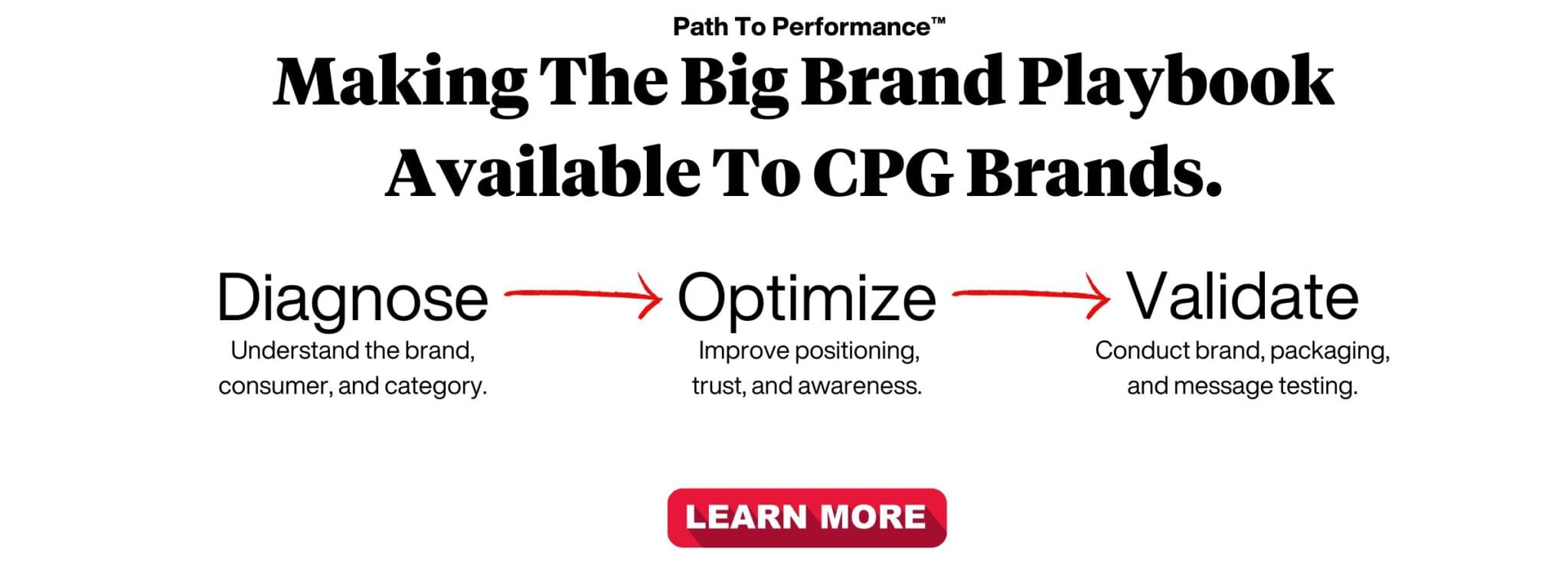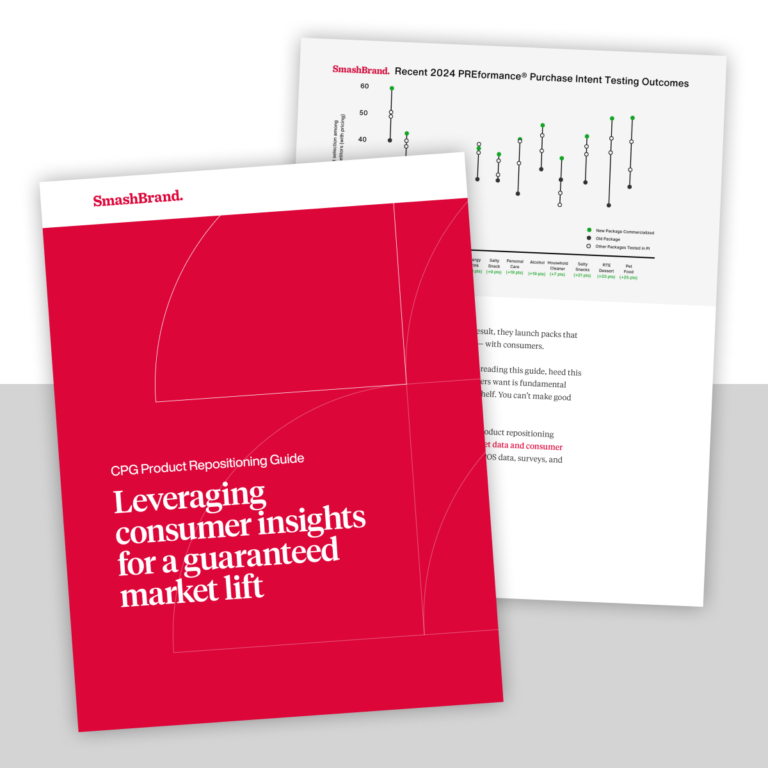Fast-moving consumer goods are frequent purchases and, from a broad FMCG category perspective, are always in demand. However, trends and competitors constantly evolve, making FMCG market research critical to a brand’s success.
Due to their high demand, less consumer-strenuous purchase pricing, and frequent use, FMCG brands must stay on the pulse to remain relevant and capture market share.
Companies must undergo a step-by-step brand development process, including research and product testing, to successfully launch an FMCG brand and compete with established products.
However, this is a challenging task and requires a multi-dimensional approach. This article will discuss the FMCG market research and reporting strategies brands must employ. In addition to this, we will discuss various factors influencing the FMCG market.
So, without any further ado, let’s get into it!
Types of FMCG Market Research
When researching consumer goods, there are multiple aspects to look for. However, the FMCG market research has been categorized into four main categories to simplify things.
Comprehending these four types will help to understand the market from a much better angle and help build a perfect marketing strategy based on the collected information.
Qualitative Research
Conducting qualitative research is to understand consumer attitudes, behavior, and motivation toward FMCG products.
These research methods include focus groups, in-depth interviews, and ethnographic research, where we gather different data types as consumer opinions.
This type of research helps to analyze the gaps in the current product industry.
Quantitative Research
Once we identify the problem and the data has been collected, the next step is quantitatively analyzing the collected datasets. Quantitative data may include the analysis of numerical data in the form of online surveys, polls, and data analytics.
Quantitative research helps further narrow down the search space when conducting market research for consumer goods.
Consumer Behavior Research
Consumer behavior analysis is an essential step in FMCG market research that we should address. Consumers are the key, and understanding consumer behavior can help launch a successful product and skyrocket sales.
This type of research mainly focuses on the consumer’s behavior towards the products, the decision-making process when buying the product, and the factors that influence the purchase decisions.
Market Trend Analysis
Understanding the market trend in the FMCG sector plays an important role. It helps to know how a particular fast-moving consumer good performs on different occasions. Some products might be seasonal, which perform better in specific events.
Apart from that, some products are usually more prevalent in certain areas. Market trend analysis is critical as it highly influences the sales, profit, and production of goods.
Benefits of FMCG Market Research
FMCG market research is the key to understanding the FMCG retail landscape. Conducting detailed market research before launching an FMCG product has multiple benefits.
Let’s look at all the benefits of consumer insights and how they can help FMCG brands.
Identifying New Product Opportunities
Market research offers a valuable advantage in discovering new goods and product opportunities. By analyzing the current market and identifying gaps, it becomes possible to introduce innovative solutions to address unmet consumer needs.
For example, there could be products that don’t fully meet the needs of particular consumers, such as individuals who oppose certain ingredients in toothpaste. A brand could introduce a new toothpaste that caters to this specific group.
Toothpaste is just one of the thousands of such examples that exist, and that is why FMCG brands should look to optimize their products for category distinction.
Understanding Consumer Preferences
Understanding consumer preferences is another plus point of the FMCG market analysis and research. Learning about the customers’ specific demographics and psychographic needs can open doors to new FMCG marketing strategies.
Working with an FMCG brand strategy agency to identify actionable insights from market research is worth the investment. Their experience in identifying opportunities in the market can significantly boost FMCG sales by targeting specific products that resonate well with the target consumer.
Furthermore, insights from this data can help identify gaps or weaknesses in their current campaign, allowing for swift corrective action.
Evaluating Brand Perception
Brand perception means how customers see and feel about the company and how they interpret and react to the messages, experiences, and interactions with a brand.
Brand perception is an important aspect our FMCG Agency focuses on. A brand is not just about a name or a logo. It is a complete perception that consumers have about a company.
For example, when it comes to hot and crispy chicken, the first thing that comes to mind is KFC. Brand perception can help companies engage with their customers better, eventually leading to more sales and increased brand loyalty.
Assessing Market Competition
Apart from measuring brand perception and understanding consumer preferences, assessment of the market competition is another plus point of market research.
FMCG brands use different tactics to determine a market’s competitiveness before launching a specific product. Assessing market competitors helps find all the ins and outs of the market to quickly capture vacant spots within your category.
Market research is no longer optional for FMCG companies seeking to enter a competitive market. National retailers are demanding this information before even starting the store placement conversation. When you can prove to the retailer that you have identified and bridged the gap in the market, they become more willing to test your brand.
Streamlined Retail Channel Strategy
An effective market analysis helps an FMCG brand to streamline its retail channel strategy completely. A company first defines its target market using the data and insight obtained from market research. Then they decide based on capital, resources, and the most impactful opportunities.
Targeting a specific market instead of launching a broad audience product is a smarter play. One example is premium FMCG products, where companies face fewer apples-for-apples competition than general commodity products.
In addition, the findings obtained from market research can assist in choosing the optimal distribution channel for a product. Observing FMCG market trends shows which physical or online channels to prioritize rather than assuming what is best for your brand.
Results obtained from the market study can also help establish a better connection with retailers. In some cases, your insights help to improve the retailer’s overall performance. Who would be mad at that?
Lastly, an FMCG brand strategy agency can easily measure its performance using market data.
Improving Marketing Strategies
Apart from all the advantages mentioned above, another benefit that FMCG market research can help with is improving the go-to-market strategy and ongoing marketing campaigns.
Companies can restructure their marketing campaigns by analyzing the current market and understanding customer behavior to improve performance, optimize FMCG pricing, and generate more leads. Brands can accomplish this through better branding, messaging, and connecting with their target audience.
For instance, a personal care product company can utilize the power of social media, such as TikTok, to gain more reach and customers.
Similarly, companies can increase their market share by selecting the right distribution channel, FMCG research data, and consumer insights up to four times.

FMCG Market Research Methodologies
When conducting market research, FMCG companies often use a range of research methodologies to gain insights into consumer preferences, behavior, and trends. Here are some standard market research methods that are most commonly used for FMCG:
Surveys
A starting point for market research that provides initial data directly from target customers. Brands can work with an agency to conduct surveys through different channels, including phone interviews, in-person interviews, social media platforms, forums, etc.
For instance, an FMCG packaging design agency can get better insights into customer preferences after conducting surveys. This can help them design more attention-grabbing and compelling package designs.
Apart from that, surveys can help understand the demographics and psychographics of the target market from a significantly closer angle.
Focus groups
In contrast to surveys, focus groups involve a group of consumers who discuss the product or service in a moderated environment.
Social media platforms like Facebook groups, Pinterest group boards, LinkedIn groups, Twitter hashtags, etc., are simple examples of focus groups. Then, carefully selected groups must meet specific criteria to participate in the research.
It can help develop an encouraging environment for an FMCG product or service where customers share their unbiased thoughts and reviews. It can help an FMCG brand development agency to improve its marketing tactics and engage with more audiences.
One thing to remember is that great products require less advertising to compete in FMCG. The quality of the product compels the consumers to recommend it to one another.
In-depth Interviews
An in-depth interview is a qualitative research method that allows an FMCG branding agency to gain insights into an individual’s experiences, perspectives, and opinions.
Interviews between a researcher and a participant occur in person or online, differing from focus groups and surveys. These interviews are advantageous when the researcher wants to gain insight into a product or a problem from various perspectives.
Conducting interviews is a valuable tool for FMCG companies to identify areas of weakness and make improvements. Additionally, it can aid in pinpointing the weaknesses of competitors, providing a marketing advantage.
Ethnographic Research
Ethnographic research is another essential method of FMCG brand research which helps improve sales in specific areas and overall revenue.
Ethnographic research involves gaining information about the target market’s behavior, culture, and social interactions. It can help FMCG brands in multiple ways.
For example, people in a specific demographic area might be vegetarians; therefore, food brands starting a business within that area must consider this factor.
In addition, in some areas, people may prefer meat over vegetables. Under such conditions, launching a meat-based food products business will bloom, provided we take other necessary prerequisites carefully.
All in all, ethnographic research allows researchers to explore themes and trends. Data from this research method can optimize products and advertisements and develop a better relationship with consumers.
Online Analytics
For brands that are using online channels, online analytics is like oxygen. It can help create a detailed market research report based on customer interactions, hobbies, demographics, and location information.
For online shopping, retailers track consumer purchases using cookies. The recorded data is then analyzed using advanced data science and machine learning techniques. After a short while, a brand or retailer can identify patterns, themes, and trends.
By using this information, companies can develop innovative strategies to connect with their consumers emotionally. Overall, online analytics is an extremely important and powerful market research method for FMCG businesses.
Challenges of FMCG Market Research
Although FMCG market research is necessary, correctly performing it is equally important. Brands of all sizes should engage in market research and decide based on the following.
Cost
One of the main challenges that FMCG branding agencies usually face when gathering market insights is the cost. Sometimes it costs FMCG branding and marketing departments valuable capital to run marketing campaigns.
For example, online FMCG ecommerce stores and service providers may leverage the power of ads on social media. While this is an effective method of brand outreach, it can be quite costly sometimes.
In addition, the cost of other marketing campaigns, such as A/B testing, can also be relatively high, depending upon the target market and the nature of the product.
Time Constraints
In addition to cost, time constraints can be a potential challenge for FMCG market research. Due to the products’ fast-moving nature and short shelf life, FMCG companies must make quick decisions for their marketing.
However, sometimes, these quick decisions may not be possible due to several factors, so the marketing agencies may have to suffer the consequences.
Shortage of time can result in limited data collection, which may need to be improved for proper analysis and to derive a hypothesis from it.
For instance, if a company is trying to release a snack product before a major sporting event, it will need more time to gather enough data for market research.
Due to the limited dataset, finding the consumer preferences that resonate with the target market becomes challenging. Also, time-sensitive decisions are another challenge that FMCG companies usually need more time.
For instance, a company trying to launch a new organic line of products may be able to sell well if they have gathered multi-dimensional insights into consumer preferences.
Sample Size
Sample size refers to the number of respondents or participants in a study or a survey. In FMCG research, sample size can influence the accuracy of the research findings.
Sample size can be a challenge for FMCG market research in multiple ways. First, the companies may have limited access to respondents, so they may need more time to collect the data required to assess the market.
For example, a company targeting a specific demographic, such as young adults, may need a larger sample size for a meaningful conclusion.
Secondly, there might be resource constraints for the company. Collecting research data with a larger sample size can be costly, time-consuming, and resource intensive. Establishing a large sample size may not be affordable for everyone; thus, companies with limited resources will fail to gather enough information.
Third, analyzing and interpreting larger datasets can be time-consuming and challenging. Therefore, sometimes FMCG companies require more expertise and resources to analyze massive datasets. Without adequate resources, drawing meaningful insights from the research findings is difficult.
Data Quality
Data quality measures how accurate, reliable, and promising the collected datasets are. Incomplete datasets with reduced accuracy may result in false positives, leading to poor decision-making and negative impacts on the business.
Data quality depends on various factors, including market size, time, and research resources. Complete and correct data is a valuable asset for the FMCG market research firm, where experts can perform different analyses and derive meaningful information from the collected information.
To ensure high-quality data in market research, companies must carefully select their market research firms and thoroughly review their methodologies and data collection processes.
In addition, they must rely on more than a single data source and triangulate their findings to ensure accuracy and reliability.
Apart from that, they should prioritize data quality by investing in quality data collection tools and ensuring that their research staff has the expertise to collect and analyze data accurately.
Future of FMCG Market Research
Multiple factors will shape the future of FMCG market research. These factors include technological advancements, the growing importance of omnichannel, sustainability, and ethical practices.
Let’s look at some factors that will change the market research methods for the FMCG industry.
Technology advancements
The FMCG sector has quickly adopted new technologies, and we expect the trend to continue.
Technologies like artificial intelligence (AI), machine learning (ML), and the Internet of Things (IoT) can help companies collect and analyze data more efficiently, enabling them to make better-informed decisions.
For example, companies can use AI-powered chatbots to collect customer feedback, analyze social media data, and perform brand testing simulations.
The Growing Importance of Omnichannel
Consumers are increasingly shopping across multiple channels, including online and offline stores.
FMCG companies must develop an omnichannel approach that seamlessly integrates their online and offline channels to remain competitive.
Market research can help companies understand how consumers use different channels and how they can improve their omnichannel experience.
Reports suggest that FMCG companies that embrace omnichannel are more likely to experience faster market growth and gain a more significant share of the global FMCG market.
Greater Emphasis on Sustainability and Ethical Practices
Consumers are becoming more conscious of their products’ environmental and social impact. FMCG companies need to respond by developing sustainable and ethical products and practices.
Market research can help companies understand what sustainability and ethical factors are essential to consumers and how to incorporate them into their products and operations.
Final Thoughts
Market research plays a crucial role in the success of companies operating in the fast-moving consumer packaged goods sector.
With the global FMCG market constantly growing and evolving, companies must stay ahead of the competition by leveraging market research to inform their decision-making.
Market research helps companies understand consumer preferences and behavior, identify emerging trends, and test new products.
It also enables companies to track market growth and changes in market share, allowing them to make strategic decisions about their product portfolio and marketing strategies.
In addition, product testing is an essential part of FMCG market research, enabling companies to ensure the quality and safety of their products.
By gathering consumer feedback, companies can identify areas for improvement and make necessary changes to their products before they hit the market.
Data-Driven Brand Development
SmashBrand is a brand development agency for CPG and FMCG companies. From brand discovery to packaging design testing, our PathToPerformance™ process guarantees a retail performance lift. Let us discuss your project with our team.
Subscribe to
Nice Package.
A monthly newsletter that unpacks a critical topic in the FMCG & CPG industry.
Free Resource.

CPG product repositioning guide.
Explore the five undeniable signs your CPG product needs repositioning along with strategies for leveraging consumer insights for a guaranteed market lift.
Learn More About CPG product repositioning guide.